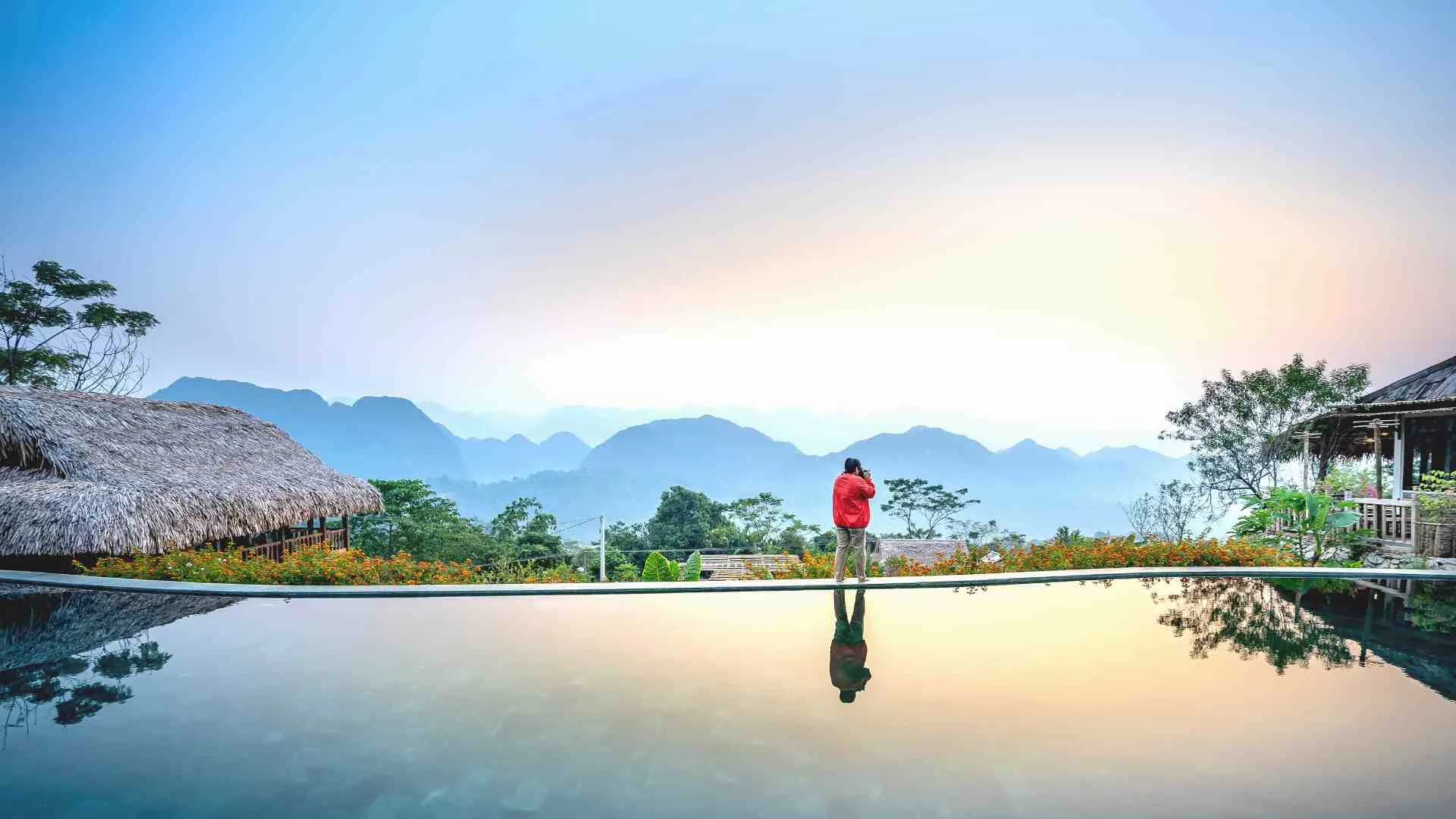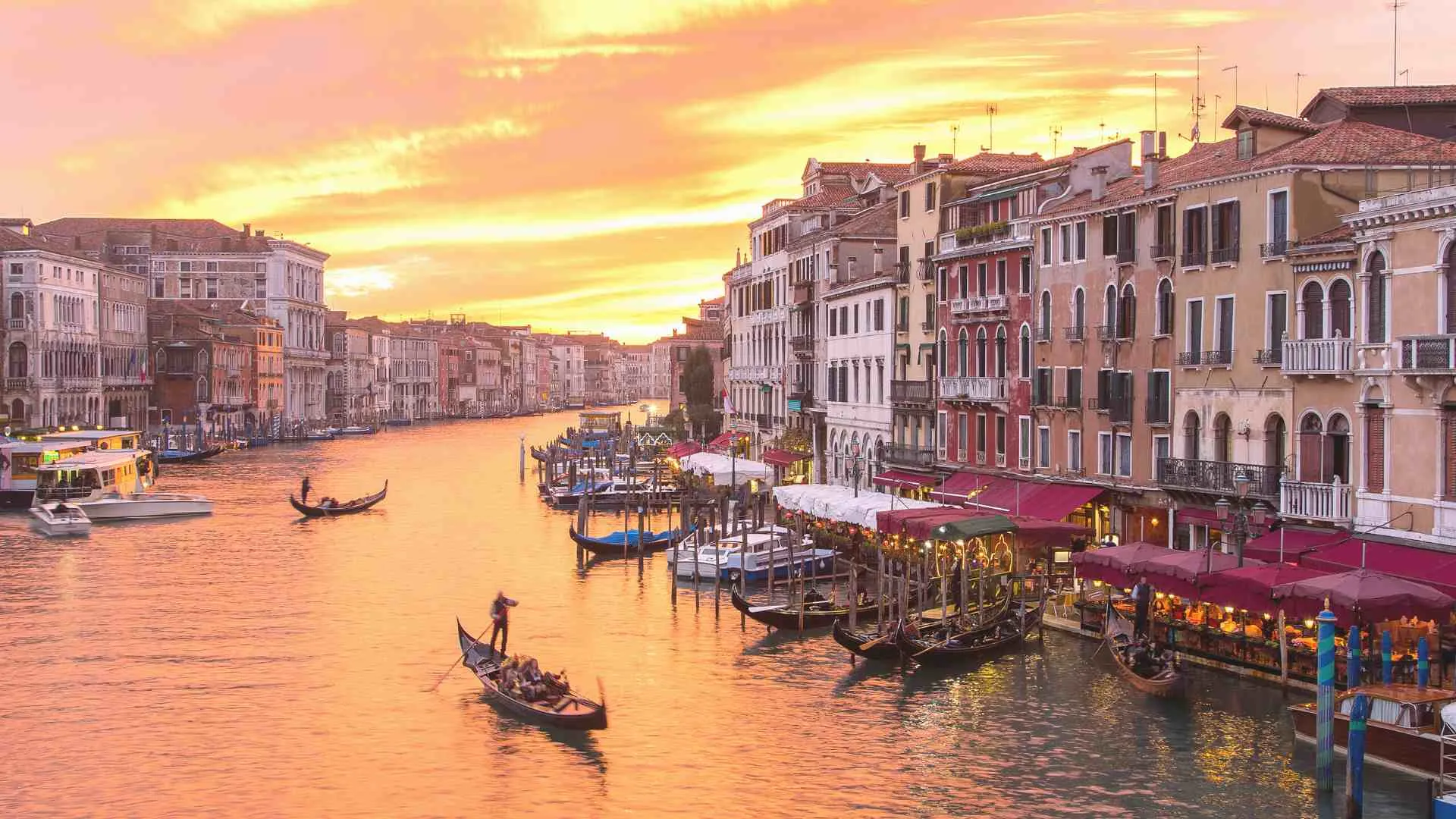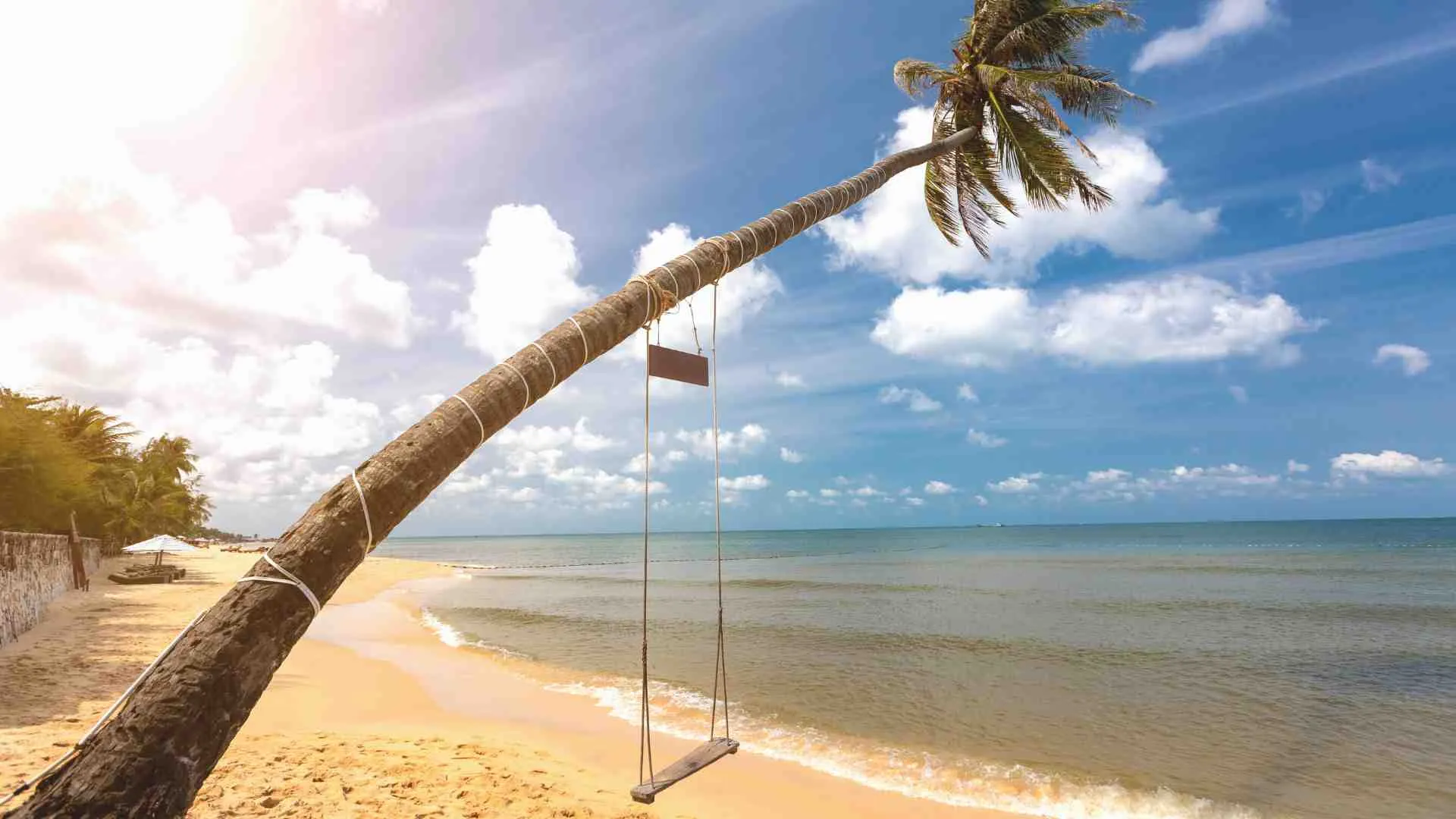Are you tired of the same old routine? Do you crave adventure and excitement in your life?
Let me tell you, it’s not just about going on trips and ticking off destinations from your bucket list. No, my friend, it’s so much more than that. Traveling can be a great interest and spare time activity.
But is traveling a hobby? Let’s dive in.

Well, Is It a Hobby?
Yes, traveling is widely regarded as a hobby. It involves exploring new places, experiencing different cultures, and seeking adventures, making it a popular leisure activity for many people.
Benefits of Traveling as a Hobby
Broadening Your Perspective
Traveling as a full-time hobby offers many benefits, and one of the most significant is the opportunity to start a new journey, broaden your perspective, and gain a deeper understanding of the world around you.
Experiencing different cultures, interacting with locals, and witnessing their customs and traditions firsthand can bring immense interest and pleasure.
It opens your eyes to diverse ways of life, beliefs, and values that may be vastly different from your own.
By exploring various cultures through travel, you develop a greater interest in and appreciation for diversity.
This travel hobby helps you become more tolerant, accepting, and open-minded, breaking down stereotypes and prejudices that may have been ingrained in your thinking.

Enhancing Personal Growth and Self-Discovery
Another reason why traveling is an excellent hobby is its ability to enhance personal growth and self-discovery.
Stepping out of your comfort zone allows you to push boundaries, challenge yourself, and discover hidden strengths within you.
As you navigate unfamiliar places, overcome obstacles, and adapt to new situations, you develop resilience and confidence in your abilities, which can further fuel your interest in traveling.
Travel experiences can also lead to profound self-reflection and pique your interest. Being away from the familiar surroundings gives you space for introspection.
You may find yourself questioning your values or reevaluating priorities when exposed to alternative lifestyles or witnessing social issues firsthand during your travels.
Moreover, traveling presents opportunities for self-discovery and personal growth.
It allows you to engage in activities or hobbies that spark your interest, such as learning a new language or trying adventure sports like scuba diving or hiking through challenging terrains. These experiences help uncover hidden passions and foster personal growth.
Developing Adaptability Skills
Few things compare to travel as a hobby. Navigating through unfamiliar territories forces you out of routines and comfort zones.
It sparks interest, as you learn to embrace uncertainty and become more flexible in dealing with unexpected situations.
While traveling, you may encounter language barriers, transportation issues, or cultural differences that require quick thinking and problem-solving skills.
These challenges provide an excellent opportunity to develop adaptability, resourcefulness, and the ability to think on your feet. They also spark interest in different cultures and languages.
Decision-making becomes a crucial skill when planning your travels, especially when it comes to choosing destinations and accommodations.
Every decision you make contributes to honing your ability to make informed choices efficiently, which is of great interest when it comes to spontaneous choices along the way.

Boosting Creativity
Traveling as a hobby can significantly boost your creativity by exposing you to diverse environments and people.
Whether it’s exploring vibrant cities or serene natural landscapes, each destination offers unique inspiration that can fuel your creative pursuits.
Experiencing different cultures exposes you to new art forms, architecture, music, cuisine, and ways of thinking.
This exposure broadens your creative horizons by introducing fresh perspectives and ideas that you may not have encountered otherwise. It allows you to break free from routine patterns of thought and encourages innovative thinking.
Furthermore, interacting with people from various backgrounds while traveling stimulates creativity through shared experiences and conversations.
Engaging with individuals who possess different viewpoints challenges your own assumptions and encourages you to think outside the box.

Reducing Stress Levels and Improving Mental Well-being
Traveling has long been recognized as a means of reducing stress levels and improving overall mental well-being.
Taking a break from daily routines allows you to unwind and recharge both physically and mentally.
When you travel as a hobby, you escape the pressures of work or personal responsibilities temporarily.
Instead of focusing on deadlines or obligations, you immerse yourself in relaxation or exploration. This change in environment helps alleviate stress by providing distance from everyday worries.
Moreover, travel offers an opportunity for self-care through activities like spa treatments or spending time in nature.
Engaging in these rejuvenating experiences promotes relaxation while boosting mood-enhancing hormones like serotonin and dopamine.
Building Resilience
One of the many reasons why traveling is a valuable hobby is its ability to build resilience. When you navigate unfamiliar situations during your travels, you develop adaptability and perseverance.
Whether it’s dealing with delayed flights, getting lost in a foreign city, or facing unexpected challenges – each hurdle strengthens your resilience muscles.

Determining the Nature of Travel: Hobby or Lifestyle?
Recognizing Your Perspective on Travel
Determining whether you view travel as a casual hobby or an integral part of your lifestyle is a philosophical question that requires self-reflection.
Take a moment to ponder how you perceive travel in relation to your life. Do you see it as a mere pastime, or does it hold deeper meaning for you?
Understanding your perspective will shed light on the role travel plays in your overall happiness and fulfillment.
Assessing Frequency and Significance
One way to gauge the nature of your relationship with travel is by assessing how frequently you engage in travel activities.
Consider the number of trips you take each year and the amount of time spent exploring new destinations.
If you find yourself constantly yearning for new adventures and planning upcoming trips, it may be an indication that travel holds significant importance in your life.
Travel can become more than just a hobby when it becomes intertwined with various aspects of our existence.
It is not merely about visiting new places; it becomes a way of life, shaping our worldview and enriching our experiences.
When we prioritize allocating time, resources, and energy towards traveling over other hobbies or commitments, we begin to realize that it has transcended the realm of a simple pastime.
Prioritizing Travel Over Other Commitments
Ask yourself if you consistently choose to allocate your limited resources towards traveling rather than other pursuits.
Are you willing to save up money specifically for trips? Do you forego certain luxuries or material possessions in order to fund your wanderlust?
Evaluating these choices can help determine whether travel has evolved into more than just a hobby for you.
For many individuals who consider travel as an integral part of their lifestyle, family commitments are also taken into account when planning trips.
They actively seek out opportunities to incorporate their loved ones into their adventures, recognizing that shared experiences create lasting memories.
Whether it’s embarking on a road trip with siblings or exploring a foreign land with children, family becomes an essential component of their travel philosophy.
Travel as an Intrinsic Part of Life
When travel becomes a lifestyle rather than a hobby, it permeates various aspects of our existence.
It goes beyond the act of visiting new places and transforms into a mindset that seeks out opportunities to explore and learn.
Those who embrace travel as an intrinsic part of life actively seek ways to incorporate it into different facets, such as work or relationships.
Incorporating travel into work can involve seeking job opportunities that allow for frequent trips or even pursuing careers in the tourism industry.
By intertwining their professional lives with their passion for exploration, these individuals find fulfillment in both realms. Similarly, they also prioritize building connections and friendships with fellow travelers, recognizing the value of shared experiences and the joy that comes from connecting with like-minded individuals.
Ultimately, determining whether traveling is merely a hobby or an integral part of your lifestyle requires introspection and honest evaluation.
By reflecting on how frequently you engage in travel activities, prioritizing it over other commitments, and actively seeking out opportunities to incorporate it into various aspects of your life, you will gain insight into the significance it holds for you.
Whether you define yourself as a casual traveler or someone whose entire life revolves around wanderlust is entirely up to you – there is no right or wrong answer.

Tips for Making Travel a Hobby
Setting Specific Goals
One of the first tips for making travel a hobby is to set specific goals for your adventures. By having clear objectives in mind, you can make your travel experiences more meaningful and purposeful.
Consider setting goals such as visiting a certain number of countries or continents within a given timeframe.
This will give you something to work towards and provide a sense of accomplishment when you achieve these milestones.
Researching Destinations
To truly make travel a hobby, it’s important to research various destinations that align with your interests and preferences.
Whether you’re passionate about history, nature, or food, there are countless places around the world waiting to be explored.
Take the time to delve into guidebooks, online resources, and travel blogs to discover hidden gems and off-the-beaten-path locations that cater to your specific interests.
Effective Budgeting
Budgeting effectively is crucial. You want to ensure that you can afford regular trips without compromising other financial responsibilities.
Start by creating a dedicated travel fund and contribute to it regularly. Look for ways to cut back on unnecessary expenses in your daily life so that you have more money available for your travels.
Consider using budgeting apps or spreadsheets to keep track of your expenses and identify areas where you can save.
Maximizing Loyalty Programs
Taking advantage of loyalty programs offered by airlines, hotels, or credit cards can significantly enhance your travel experiences while saving you money in the long run.
Sign up for frequent flyer programs and hotel rewards programs to earn points or miles with every trip.
These loyalty programs often offer perks such as free upgrades, access to exclusive lounges, and discounted rates on future bookings. Make sure to compare different programs and choose ones that align with your travel preferences.
Balancing Time Management
Balancing work, personal life commitments, and travel aspirations is essential for making travel a hobby. It’s important to prioritize time management skills to ensure that you can dedicate enough time to your travels without neglecting other aspects of your life.
Plan your trips well in advance and coordinate with your work schedule to avoid conflicts. Look for opportunities to combine business trips with personal travel or take advantage of long weekends and holidays to fit in shorter getaways.
Making Travel Affordable
Traveling doesn’t have to break the bank, especially if you’re looking to make it a hobby. There are several ways to make travel more affordable.
Consider opting for budget accommodations such as hostels or vacation rentals instead of expensive hotels.
Research low-cost transportation options like budget airlines or public transportation systems in your destination. Be flexible with your travel dates and destinations, as this can often lead to significant savings.

Exploring Traveling in Relation to Other Hobbies
Enhancing Your Overall Experience
Combining travel with hobbies such as photography, hiking, or cooking can greatly enhance your overall experience.
Imagine capturing breathtaking landscapes through the lens of your camera, immersing yourself in nature while hiking through scenic trails, or indulging in local cuisines and learning authentic recipes during your travels.
By incorporating these activities into your trips, you not only get to explore new destinations but also engage in meaningful experiences that align with your interests.
Photography is a popular hobby that pairs perfectly with traveling. Whether you’re a beginner or an experienced photographer, there’s always something captivating about capturing the essence of a place through photographs.
From iconic landmarks to hidden gems off the beaten path, each destination offers unique opportunities for you to hone your skills and create lasting memories.
Researching the best spots for photography beforehand allows you to plan your itinerary accordingly and make the most out of every shot.
Similarly, if hiking is one of your favorite pastimes, exploring new trails and landscapes around the world can be an exhilarating adventure.
From majestic mountains to lush forests and coastal paths, there are endless possibilities for hikers of all levels. Prioritize researching popular hiking routes and ensure you have the necessary equipment before embarking on any journey.
Connecting with local hiking communities or joining guided tours can provide valuable insights and enhance safety during your hikes.
For those who enjoy cooking or trying different cuisines, traveling opens up a world of flavors and culinary traditions.
Seek out destinations known for their gastronomic delights and immerse yourself in local food culture by participating in cooking classes or food tours.
You’ll not only learn new recipes but also gain a deeper understanding of the region’s history and traditions through its cuisine.
Seeking Out Destination-Specific Opportunities
One exciting approach is seeking out destinations that offer specific opportunities aligned with your interests.
For example, if you’re a scuba diving enthusiast, tropical locations with vibrant marine life and clear waters are ideal destinations to explore.
Imagine diving among colorful coral reefs in the Maldives or encountering exotic sea creatures in the Great Barrier Reef. Researching dive sites, local regulations, and reputable dive operators beforehand ensures a safe and unforgettable experience.
On the other hand, if skiing is your passion, mountainous regions with snowy slopes become your playground during winter months.
From world-renowned ski resorts in the Swiss Alps to hidden gems in Canada or Japan, there’s no shortage of options for avid skiers.
Consider factors such as snow conditions, difficulty levels, and après-ski activities when choosing your destination. Planning ahead allows you to make the most of your time on the slopes and enjoy a well-rounded skiing vacation.
Connecting with Like-Minded Individuals
Traveling alone can be a wonderful opportunity for self-discovery and personal growth.
However, joining travel groups or communities centered around shared hobbies can add an extra layer of enjoyment to your trips.
Interacting with like-minded individuals who share similar interests creates opportunities for camaraderie and memorable experiences.
Whether it’s joining a photography club that organizes group photo walks in different cities or connecting with hiking enthusiasts through online forums, these communities offer valuable insights and companionship during your travels.
You can exchange tips and recommendations, share stories from your adventures, or even plan group trips together.
Incorporating Local Cultural Activities
While pursuing our hobbies during travel is important, it’s equally essential to immerse ourselves in local cultural activities related to our interests.
Engaging with local traditions not only enriches our understanding of the destination but also provides unique perspectives on our hobbies.
For instance, if you’re passionate about photography while visiting India, exploring ancient temples adorned with intricate carvings or capturing vibrant street scenes during traditional festivals like Holi can offer unparalleled opportunities for creative expression.
Similarly, if you’re a food lover visiting Thailand, learning to cook authentic Thai dishes or participating in local food markets can deepen your appreciation for the country’s culinary heritage.

Filling Leisure Time with Fulfilling Travel Experiences
Making the Most of Limited Leisure Time
We all strive to make the most of it.
Whether it’s a few hours on the weekend or a short break during the workweek, planning weekend getaways or short trips can be an excellent way to fill your spare time with fulfilling travel experiences.
Instead of letting those precious moments slip away, why not embark on an adventure and create memories that will last a lifetime?
One effective strategy is to utilize public holidays and vacation days strategically throughout the year.
By aligning your time off with long weekends or festive occasions, you can maximize your travel opportunities without sacrificing too much from your regular routine.
It’s like hitting two birds with one stone – you get to enjoy some well-deserved relaxation while exploring new destinations.
Exploring Nearby Attractions and Hidden Gems
Travel doesn’t always have to involve crossing borders or embarking on long journeys.
When time is limited, exploring nearby attractions and hidden gems within your own region can be just as rewarding.
You’d be surprised by what you might find right in your backyard! From charming small towns and picturesque landscapes to historical sites and ancient ruins, there’s plenty to discover if you look closely enough.
By focusing on the beauty of your immediate surroundings, you’ll gain a deeper appreciation for where you live while satisfying your wanderlust cravings.
Plus, these shorter trips allow for more flexibility in terms of planning since they don’t require extensive time commitments. So grab a map, do some research, and set out on an adventure that lies just around the corner!
Engaging in Slow Travel for Immersion
Sometimes, instead of rushing from one tourist spot to another, it’s worth slowing down and immersing yourself fully in a destination’s culture and lifestyle.
This is where slow travel comes into play – staying longer in one place allows you to experience it on a more profound level.
Rather than merely scratching the surface, you can dive deep into the local traditions, cuisine, and way of life.
Imagine waking up in a cozy apartment in Paris and spending your days strolling along the Seine, savoring croissants at a nearby café, and getting lost in the narrow streets of Montmartre.
By embracing slow travel, you can truly live like a local and create meaningful connections with the people and places around you. So why rush when you can take your time and let every moment sink in?
Prioritizing Quality over Quantity
In our fast-paced world where ticking off bucket lists seems to be the norm, it’s essential to remember that travel is not just about quantity but also about quality.
Instead of trying to visit as many destinations as possible within a limited timeframe, consider focusing on meaningful experiences that leave a lasting impact.
Rather than rushing through popular tourist spots just for the sake of saying you’ve been there, take the time to truly connect with each place you visit.
Engage with locals, try authentic cuisine, participate in cultural activities – these are the moments that will stay with you long after your trip is over.
Remember, it’s not about how many places you’ve seen; it’s about how deeply those places have touched your heart.

Questions to Ask about Traveling as a Hobby
How can I afford frequent travels without breaking the bank?
Traveling doesn’t have to drain your bank account. With some smart planning and budgeting, you can make your wanderlust dreams a reality without going broke.
Here are a few tips to help you afford frequent travels:
- Set a travel budget: Determine how much money you can allocate towards your trips each month or year. This will give you a clear idea of what you can afford and help you prioritize your spending.
- Save strategically: Cut back on unnecessary expenses in your daily life and redirect those savings towards your travel fund. Consider packing lunch instead of eating out, canceling unused subscriptions, or opting for public transportation instead of driving.
- Be flexible with dates and destinations: Travel during off-peak seasons or look for last-minute deals to score cheaper flights and accommodations. Also, consider visiting destinations where the cost of living is relatively lower.
- Embrace alternative accommodations: Instead of always staying in hotels, explore options like hostels, guesthouses, or vacation rentals through platforms like Airbnb. These alternatives often offer more affordable rates while providing unique experiences.
- Maximize rewards points and loyalty programs: Take advantage of credit card rewards programs that offer points for travel-related expenses like flights and hotel stays. Join loyalty programs offered by airlines and hotels to earn perks and discounts.
- Travel locally: Exploring nearby cities or towns can be just as exciting as traveling abroad but at a fraction of the cost. Discover hidden gems in your own backyard by planning weekend getaways or day trips.
Remember that traveling on a budget requires some sacrifices, but it’s all worth it when you get to experience new cultures, meet interesting people, and create lifelong memories.
Is it possible to balance a full-time job with regular travel adventures?
Absolutely! Many people successfully balance their full-time jobs with regular travel adventures. It may require some planning and flexibility, but with the right approach, you can make it work.
Here are a few strategies to help you achieve this:
- Utilize your vacation days wisely: Plan your trips around long weekends or public holidays to maximize your time off work. By strategically using your vacation days, you can extend your travels without taking additional time off.
- Negotiate remote work options: If your job allows for remote work, consider negotiating a flexible schedule that allows you to work remotely while traveling. This way, you can explore new destinations during evenings and weekends without sacrificing your professional commitments.
- Take advantage of business trips: If your job involves occasional business travel, try to extend those trips by a few days to explore the destination on your own dime. This way, you get the best of both worlds – work and leisure.
- Plan shorter but frequent trips: Instead of taking one long vacation per year, plan several shorter trips throughout the year. This way, you can satisfy your wanderlust without being away from work for an extended period.
- Prioritize efficient packing and planning: Streamline your packing process to save time and reduce stress before each trip. Create checklists, pack versatile clothing items that can be mixed and matched easily, and use packing cubes or organizers to optimize space in your luggage.
Remember that finding a balance between work and travel requires effective time management and open communication with your employer or colleagues. With proper planning and a positive mindset, it is indeed possible to embark on exciting adventures while maintaining a successful career.
What are some safety precautions I should take while traveling alone?
Traveling alone can be an incredibly rewarding experience; however, it’s important to prioritize safety when exploring unfamiliar territories solo. Here are some essential safety precautions to keep in mind:
- Research destinations in advance: Before traveling to a new place, research the local customs, laws, and potential safety concerns. Familiarize yourself with common scams or areas to avoid.
- Share your itinerary: Inform a trusted friend or family member about your travel plans, including details of your accommodation and any activities you have planned. Regularly check-in with them during your trip to keep them updated on your whereabouts.
- Stay aware of your surroundings: Pay attention to your surroundings at all times and trust your instincts. Avoid isolated areas, especially at night, and be cautious when interacting with strangers.
Defining Traveling as a Hobby
Recognizing the Essence of Traveling as a Hobby
Have you ever wondered if traveling can be considered more than just a means to get from one place to another?
Well, if you are someone who actively seeks out new destinations and experiences beyond necessity or obligation, then traveling definitely qualifies as a hobby for you.
Unlike occasional or mandatory travel, engaging in regular trips for personal enjoyment distinguishes it as something more profound.
When we talk about traveling as a hobby, we delve into the realm of passion and adventure. It goes beyond simply fulfilling our basic needs; it becomes an intrinsic part of who we are.
People with this hobby invest their time, effort, and resources into planning and executing trips that ignite their sense of wanderlust.
They meticulously research destinations, create detailed itineraries, and eagerly anticipate the joy that awaits them on each journey.
The Driving Force Behind Traveling as a Hobby
What motivates individuals to pursue traveling as a hobby? The answer lies in their insatiable curiosity and desire to explore new places and cultures.
For them, stepping foot in unfamiliar territory is akin to embarking on an exhilarating treasure hunt.
Each destination offers unique experiences waiting to be discovered – from tasting exotic cuisines to immersing themselves in vibrant local traditions.
Traveling enthusiasts thrive on the thrill of discovering hidden gems off the beaten path.
They seek out breathtaking landscapes that leave them awestruck, encounter diverse communities that broaden their perspectives, and collect memories that become cherished stories shared with friends and family back home. Their passion for exploration fuels their constant quest for new adventures.
Embracing the Journey
When you consider traveling solely as a means of transportation or fulfilling obligations, you miss out on the true essence of this remarkable hobby.
It’s not just about reaching your destination; it’s about embracing every step along the way – from planning your itinerary meticulously to immersing yourself in the local culture and connecting with fellow travelers.
As a hobby, traveling offers endless possibilities for personal growth and self-discovery.
It pushes you out of your comfort zone, challenges your preconceived notions, and exposes you to diverse perspectives. Each trip becomes an opportunity to learn, adapt, and broaden your horizons.
Moreover, traveling as a hobby allows you to create lasting memories that enrich your life.
Whether it’s hiking through lush rainforests or strolling along ancient cobblestone streets, every experience contributes to the tapestry of your personal journey. These moments become cherished souvenirs that evoke joy and nostalgia long after the trip has ended.

Stepping Out of Your Comfort Zone through Travel
Expanding Your Culinary Horizons
Have you ever tried a dish so unique and delicious that it transported you to a different world?
When you travel, one of the best ways to step out of your comfort zone is by trying local cuisine or participating in cooking classes.
By indulging in new flavors and culinary experiences, you not only expand your palate but also gain a deeper understanding of the culture and traditions of the place you are visiting.
Imagine yourself strolling through the vibrant streets of Bangkok, Thailand. As you pass by food stalls filled with aromatic spices and sizzling pans, your senses come alive.
You decide to try Pad Thai, a popular street food dish. The combination of sweet, sour, salty, and spicy flavors dances on your tongue, leaving an indelible mark on your taste buds.
By embracing this culinary adventure, you not only satisfy your hunger but also create lasting memories.
In addition to trying local delicacies, participating in cooking classes can be an enriching experience. Imagine yourself learning how to make homemade pasta in Italy or mastering the art of sushi-making in Japan.
These hands-on experiences allow you to learn from experts while immersing yourself in the local culture. As you chop ingredients and mix flavors under their guidance, you gain valuable insights into traditional cooking techniques and ingredients unique to each region.
Embracing New Challenges through Adventure Activities
Are you someone who seeks thrill and excitement?
If stepping out of your comfort zone means conquering fears and embracing new challenges for you, then engaging in adventure activities during your travels is a must.
Picture yourself standing on a towering cliff overlooking Queenstown, New Zealand—the adrenaline capital of the world.
The wind tugs at your hair as bungee jumpers leap off the platform above. Despite feeling nervousness creeping up within you, something inside pushes you forward—a desire to conquer fear and experience something extraordinary.
With a deep breath, you take the plunge, hurtling towards the ground before bouncing back up with an overwhelming sense of accomplishment.
Paragliding is another adventure activity that can push you out of your comfort zone. Imagine yourself soaring through the sky like a bird, taking in breathtaking views of the Swiss Alps or the picturesque landscapes of Nepal.
The initial hesitation gives way to a rush of exhilaration as you glide through the air, defying gravity and embracing the unknown. These adrenaline-pumping experiences not only provide unforgettable memories but also empower you to overcome self-imposed limitations.
Learning from Locals and Immersing Yourself in New Cultures
Traveling offers a unique opportunity to interact with locals and gain insights into their customs, traditions, and way of life.
Stepping out of your comfort zone means venturing beyond tourist hotspots and seeking authentic connections with people from different countries.
Imagine finding yourself in a bustling market in Marrakech, Morocco. As you navigate through narrow alleyways lined with vibrant stalls selling spices, textiles, and handicrafts, friendly locals approach you with warm smiles.
Engaging in conversations with them allows you to learn about their daily lives, cultural practices, and historical anecdotes that may not be found in guidebooks.
By connecting with locals on social media platforms or attending community events during your travels, you can foster meaningful relationships that go beyond surface-level interactions.
These connections enable you to gain insider knowledge about hidden gems within a destination—off-the-beaten-path locations that offer unique experiences away from the typical tourist crowds.
Venturing into Unfamiliar Territories
Stepping out of your comfort zone often involves exploring destinations outside your usual travel preferences or familiar territories.
While it’s tempting to stick to what we know best or feel comfortable with, embracing unfamiliar places can lead to unexpected discoveries and personal growth.
For instance, if beach vacations have been your go-to choice, why not plan a trip to the mountains or a bustling city instead?
By immersing yourself in new environments, you expose yourself to different cultures, landscapes, and ways of life. This exposure broadens your perspective and challenges preconceived notions you may have held.
To take it a step further, embracing spontaneity during your travels can lead to unforgettable experiences.
While planning is essential for a smooth journey, allowing room for unexpected opportunities can add an element of surprise and excitement. Say yes to that local festival you stumble upon or join a group of fellow travelers on an impromptu hike.
These unplanned adventures often become cherished memories that remind us of the beauty of living in the present moment.

Language Learning and Travel: Expanding Linguistic Skills
Immersion in Foreign Language Environments: Enhancing Language Learning Abilities While Traveling
Imagine strolling through the vibrant streets of Paris, hearing the melodic sounds of French being spoken all around you.
Or perhaps you find yourself wandering through bustling markets in Tokyo, surrounded by a symphony of Japanese conversations.
Traveling provides an incredible opportunity to immerse yourself in foreign language environments, allowing you to enhance your language learning abilities.
When you travel to a country where the primary language is different from your own, you are presented with a unique chance to fully immerse yourself in that language.
By constantly hearing and engaging with native speakers, your ears become attuned to the nuances of pronunciation, intonation, and cadence.
This immersion experience helps train your brain to understand and process the new language more effectively.
To make the most of this immersive environment, it can be beneficial to supplement your experiences with formal language learning methods.
Consider enrolling in local language courses or hiring tutors who can provide personalized instruction based on your proficiency level and specific goals.
These experts can guide you through grammar rules, vocabulary expansion exercises, and conversational practice sessions tailored to your needs.
Practical Steps for Improving Proficiency: Taking Language Courses and Hiring Local Tutors
Taking formal language courses while traveling offers a structured approach to improving proficiency in specific languages.
Many cities around the world have reputable institutions that offer short-term courses designed for travelers seeking rapid progress.
These programs often focus on practical communication skills relevant to everyday situations such as ordering food at restaurants or asking for directions.
Hiring local tutors can be an excellent way to accelerate your language learning journey during trips abroad.
These tutors possess intimate knowledge of their native languages and cultures, enabling them to provide valuable insights beyond what textbooks or online resources may offer.
They can help refine your pronunciation, correct grammatical errors, and introduce colloquial expressions that add authenticity to your language skills.
Conversational Practice: Gaining Practical Experience in Using a Foreign Language Effectively
While formal language courses and tutoring sessions are essential, nothing compares to the practical experience gained through conversing with locals.
Engaging in conversations with native speakers allows you to put your newfound language skills into practice, building confidence and fluency.
It also provides an opportunity to learn about different cultures firsthand, as language is intricately intertwined with a society’s customs and traditions.
Don’t be afraid to strike up conversations with locals whenever possible. Start by practicing basic greetings and simple phrases, gradually progressing to more complex discussions.
Locals are often delighted when visitors make an effort to communicate in their native tongue, and they may even offer valuable tips or corrections along the way.
Language-Learning Apps and Online Resources: Tailored for Travelers Seeking Basic Communication Skills
In today’s digital age, language-learning apps and online resources have become invaluable tools for travelers seeking basic communication skills in various languages.
These resources provide convenient access to lessons, vocabulary lists, pronunciation guides, and interactive exercises that can be accessed anytime, anywhere.
Popular language-learning apps such as Duolingo or Babbel offer gamified experiences that make learning feel like a fun challenge rather than a tedious task.
They allow you to set goals, track progress, and engage in bite-sized lessons ideal for those on the go. Online platforms like YouTube or podcasts provide authentic content created by native speakers that expose you to real-life conversations and cultural insights.
By incorporating these apps and online resources into your travel routine, you can maximize your language learning potential even during moments of downtime or while commuting between destinations.
Frequently Asked Questions about is Traveling a Hobby?
How can I afford to travel frequently?
Traveling doesn’t have to break the bank. Start by setting aside a portion of your income specifically for travel expenses. Look for budget-friendly destinations and accommodations, take advantage of travel deals and discounts, and consider alternative options like house-sitting or volunteering abroad.
Is it safe to travel alone?
While safety should always be a priority when traveling alone, taking necessary precautions can ensure a secure journey. Research your destination beforehand, stay alert in unfamiliar surroundings, inform someone trustworthy about your itinerary, and trust your instincts throughout the trip.
Can I still pursue other hobbies while traveling?
Absolutely! Traveling doesn’t mean giving up other hobbies; it means finding ways to incorporate them into your journeys. Whether it’s painting landscapes on the go or practicing yoga amidst breathtaking scenery, there are endless opportunities to merge your passions with travel.
How do I overcome language barriers while traveling?
Language barriers need not hinder your travel experiences. Learning basic phrases in the local language can go a long way in communicating with locals. Technology offers translation apps that can help bridge any communication gaps.
What if I don’t have much time for extensive trips?
Even if you have limited time, there are still ways to make travel a hobby. Consider shorter weekend getaways or exploring nearby destinations. The key is to prioritize and make the most of the time available to you.
Defining Traveling as a Hobby
Traveling as a hobby goes beyond mere sightseeing; it becomes an integral part of your lifestyle and personal growth. It’s about embracing new experiences, discovering yourself in unfamiliar settings, and continuously seeking adventures that ignite your passion for exploration.
Related Posts and Terminology for Travel Enthusiasts
For further inspiration and information on traveling as a hobby, check out our related blog posts and familiarize yourself with common travel terminology used by enthusiasts around the world. Dive into the vast community of travel lovers who share their experiences, tips, and recommendations.
Stepping Out of Your Comfort Zone through Travel
Traveling pushes us beyond our comfort zones, encouraging personal growth and resilience. It challenges us to adapt to new environments, navigate unfamiliar situations, and embrace the unknown. By stepping out of your comfort zone through travel, you’ll discover strengths within yourself that you never knew existed.
Language Learning and Travel: Expanding Linguistic Skills
One of the incredible benefits of traveling is the opportunity to learn new languages or improve existing linguistic skills. Immersing yourself in different cultures exposes you to diverse languages and dialects. Whether it’s ordering food in a local market or engaging in conversations with native speakers, language learning becomes an exciting part of your travel journey.

